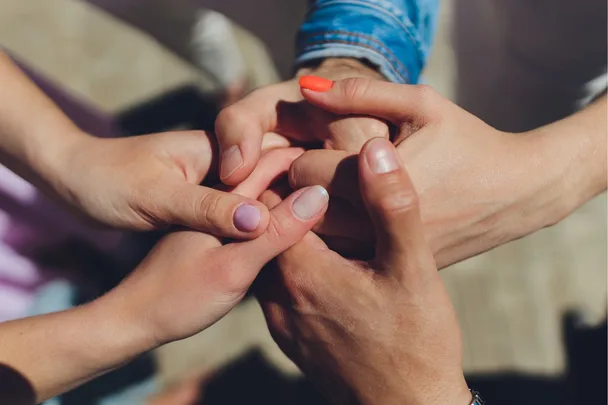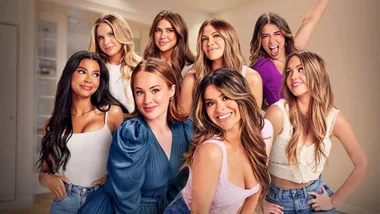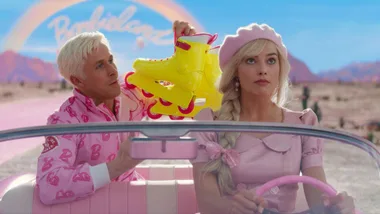When you tell someone you’re in an open relationship, they always have questions.
When they find out you were sceptical of any form of non-monogamy and are now happy and fulfilled in an open relationship, they have even more questions. Here are my answers to some of the most common questions I’ve been asked since making the switch to ethical non-monogamy (ENM).
Read Siobhan’s thoughts on marriage and kids in a non-monogamous relationship here.
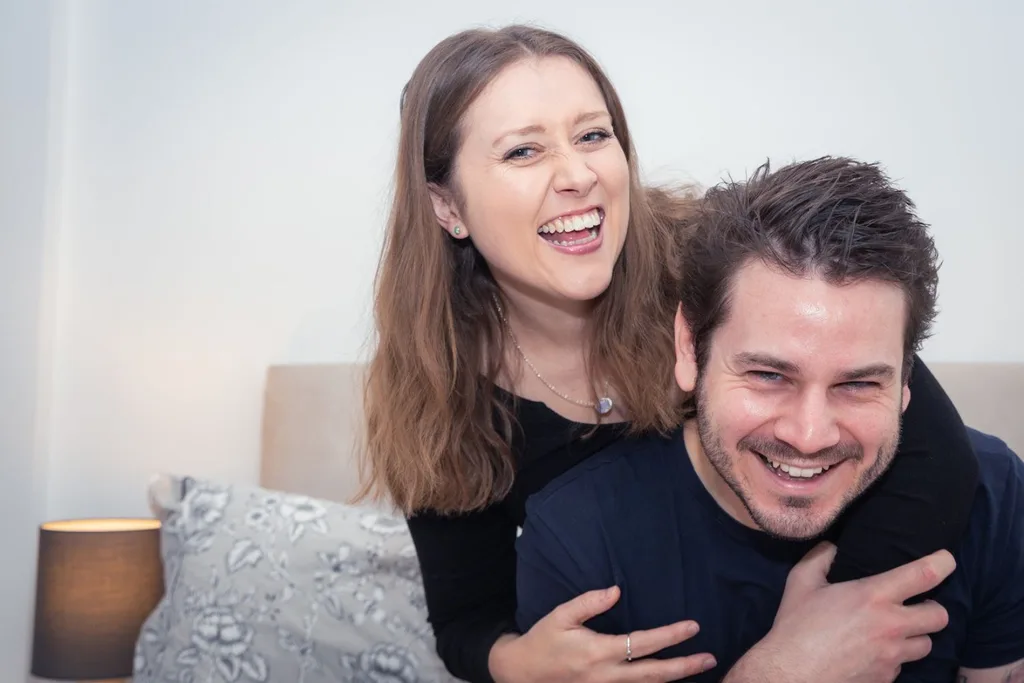
How did you become non-monogamous?
My primary partner, Richard, and I opened our existing monogamous relationship after he told me he is polyamorous-by-orientation.
This revelation meant I had to let go of our monogamous relationship to make way for our polyamorous one. The experience of ‘breaking up a relationship’, while being in a new relationship with the same person was extremely disorienting.
In her 2015 TED Talk, Rethinking Infidelity… A Talk For Anyone Who Has Ever Loved, Esther Perel references the evolving state of some relationships. “Today in the West, most of us are going to have two or three relationships or marriages, and some of us are going to do it with the same person,” she says.
Opening our relationship was a new beginning for us. It was when I realised my insecurities about being valuable and enough for my partner were the same in monogamy and polyamory that I knew I’d be okay in an open relationship. I needed to do some internal work, and opening my relationship facilitated that.
How does non-monogamy work? What are the rules?
The scope of relationships varies and it’s extremely important to communicate with your partner what goals and boundaries you have within any relationship.
Richard and I practice hierarchical ENM, which means we have a primary couple (us) and date other people outside of our relationship without the goal of expanding our primary relationship.
Soon after we opened up, we wrote down our ‘relationship agreement’ which outlines our ‘rules’ about sex, communication and dating. Some of ours include not having other partners in our flat where we live together and always practicing safe sex, which includes always using condoms with other partners.
It’s important to know that all relationships, ENM or otherwise, will look different. We decided on ‘the rules’ that are right for us.
In non-monogamy, why aren’t you ‘enough’ for your partner?
My relationship with Rich and any other relationship, romantic or otherwise, doesn’t define me.
And it certainly doesn’t determine my inherent value or self-worth. It’s important to know who you are outside of another’s gaze.
“Stop looking outside for scraps of pleasure for fulfillment, for validation, security or love. You have a treasure within that is infinitely greater than anything the world can offer,” spiritual teacher Eckhart Tolle once said.
Once I stopped deriving my self-worth from my partner (and others) and started getting it from within, I was able to stop thinking Rich’s actions reflected my enough-ness. I learnt that as humans, we are enough by design. As long as we exist, we are enough.
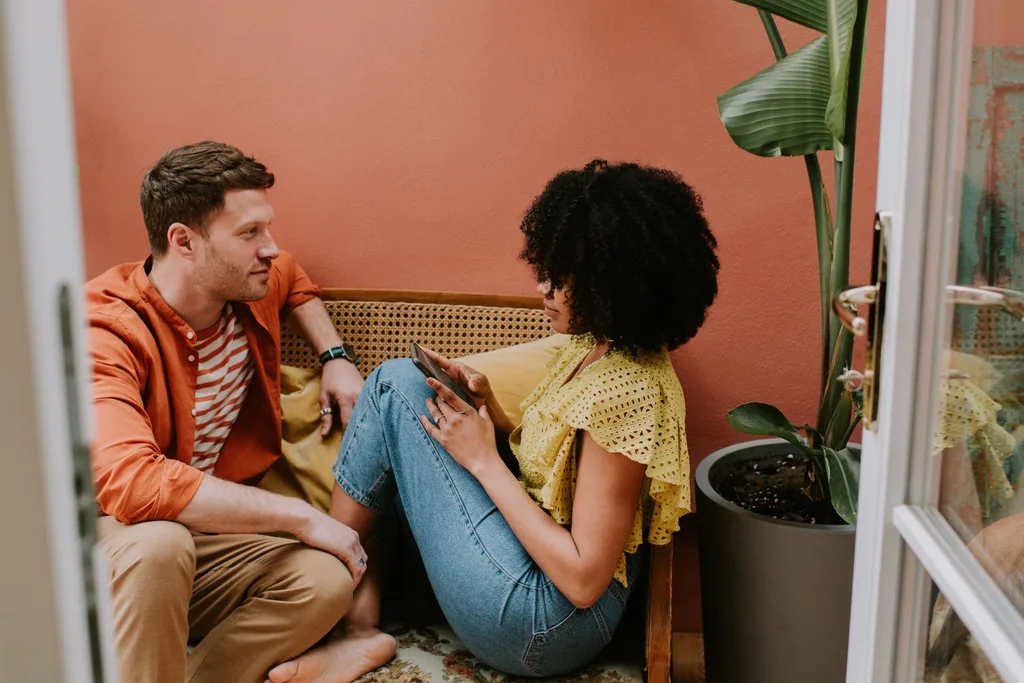
Jealousy and non-monogamy: Do you get jealous in a non-monogamous relationship?
Of course! I am a human who experiences the full range of emotions. It’s a common misconception that people who are non-monogamous are devoid of jealousy.
In their book The Anxious Person’s Guide to Non-Monogamy, Lola Phoenix writes, “One of the biggest conflations in a lot of polyamory advice is the assumption that jealousy, in whichever way you define it, comes from ‘insecurity.”
While it can come from insecurity, and it does for me sometimes, jealousy can also be wanting something your partner has or is giving to someone else. Feeling jealousy is normal, just like feeling sadness, grief or anxiety. Knowing that your partners’ love isn’t finite is key, which leads me to the next question.
What if your partner finds someone they like better than you?
This question comes from the mono-normative idea that dating other people is inherently dangerous, because introducing new people increases the risk of your partner leaving you. To that I say:
- The danger of your partner finding someone else they like better than you exists even if you are monogamous.
- We are taught that your partner having feelings for another person means they are going to want to escalate their feelings into a full-blown relationship, which just isn’t true.
- In ENM, you don’t have to choose between partners.
- There isn’t a limit to the amount of love one person can feel. So, your partner can love you AND love someone else.
Cool, right?

Do you have to worry about cheating in a non-monogamous relationship?
It is wrong to assume you “don’t have to worry about cheating” in a non-monogamous relationship. Remember that ‘relationship agreement’ we talked about?
For Rich and I, breaking a rule on our ‘one-pager’ is classed as cheating.
“To avoid infidelity and breaches of trust, a couple needs to negotiate and set realistic, explicit boundaries with each other,” psychotherapist Suzan Wenzel says in her book A Happy Life In An Open Relationship. When we opened our relationship, we had to redefine the traditional definition of cheating (usually physical relationships with another) as it no longer applied to us. Every person who is non-monogamous will have their own definition of cheating, in the same way monogamous folk will.
Do people in non-monogamous relationships just want casual sex?
Another misconception about ENM is that people want wild sex with anyone who’s keen until they find someone to ‘settle down with’. This idea is derivative of our mono-normative culture and diminishes the validity of ENM relationships.
While some people might just be looking for more casual or sporadic encounters (which is fine, everything’s a spectrum, y’all) I look for a solid, meaningful connection and if it feels right, good sex too.
Listen to Siobhan Kenna and her partner Rich discuss poly life on their podcast, The Poly (Pod)Cast, here.
